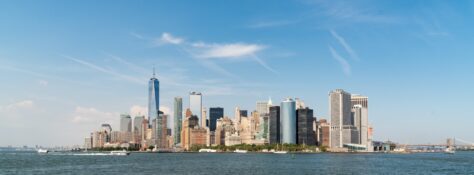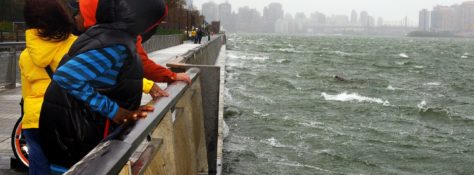News
More than 125 organizations including NYLCV joined together to hold a virtual lobby day in support of a range of environmental programs. Cutting environmental funding in 2021 would be pennywise and pound foolish, and we were glad to find on November 10th that so many of our state legislators agree.
Learn MoreNews
The NYC Mayor’s Office recently released the long-awaited OneNYC 2020 Progress Report. While New York City’s social justice agenda is on the right track with the majority of its initiatives, there is still a long way to go to reach its environmental goals.
Learn MoreNews
To add to the extraordinariness of 2020, this year also marks a historic and destructive Atlantic hurricane season. So far, 11 named storms have made landfall in the U.S. mainland, breaking the previous record of 9 storms set in 1916.
Learn MoreNews
The New York City Council Committee on Resiliency and Waterfronts held an oversight hearing to coincide with the eighth anniversary of Superstorm Sandy. NYLCV testified that while the steps taken by the City have been critical for affected communities, New York needs to establish its own resiliency plan for future emergencies rather than rely on federal emergency funding.
Learn MoreNews
The NYS Public Service Commission recently approved the NYS Energy Research and Development Authority’s expanded Clean Energy Standard (CES)
Learn MoreNews
New Yorkers are relying on parks and open spaces more than ever as an outlet to maintain their mental and physical health. But severe cuts to the New York City Department of Parks & Recreation's budget may lead to the deterioration of certain public parks in the future.
Learn MoreNews
The number of children with lead poisoning in NYC has decreased, but stronger lead mitigation laws should be implemented to eliminate the risk of childhood lead poisoning in the city.
Learn More



